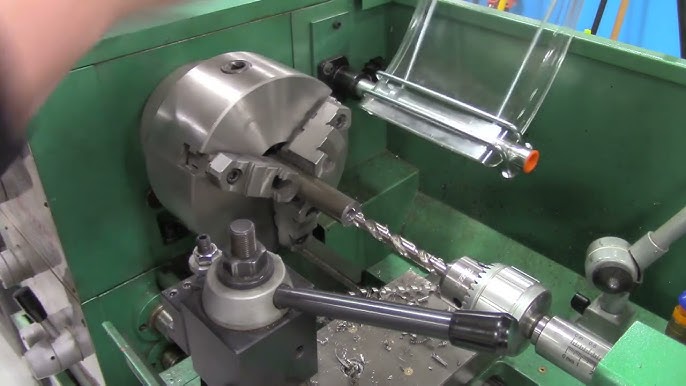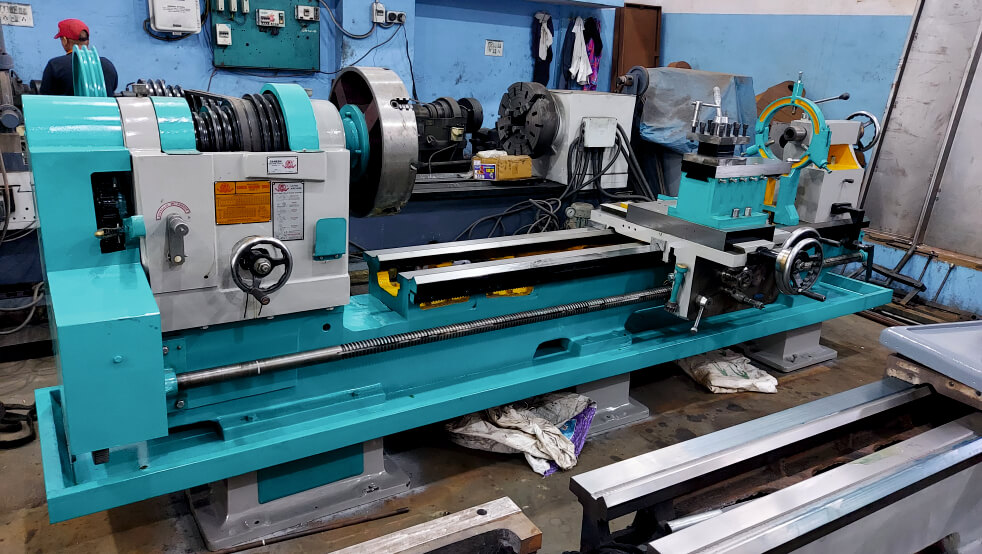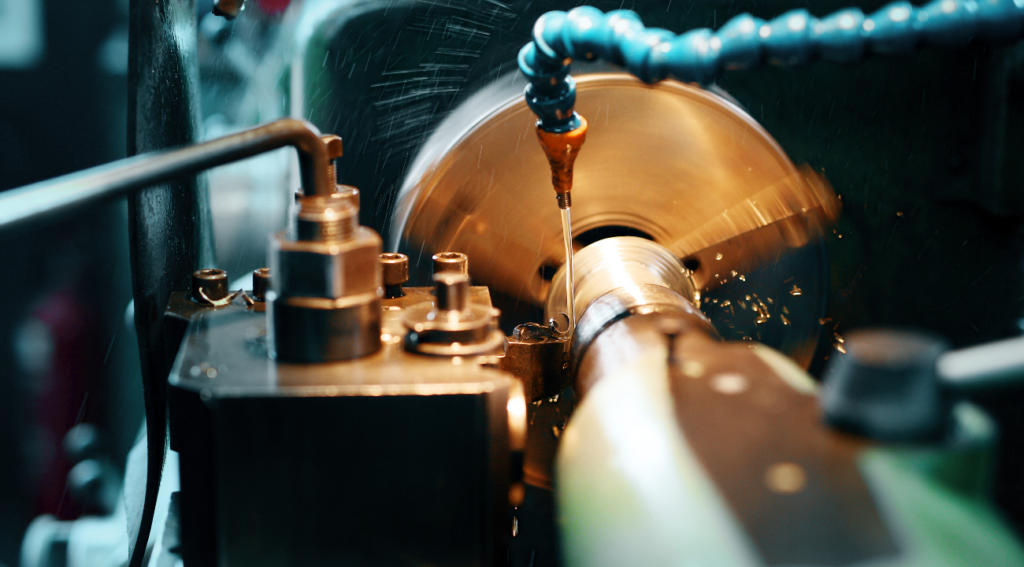When it comes to the manufacturing industry, the choice of machinery can significantly impact productivity and precision. Understanding the
advantages of CNC machines over traditional lathes can help industry professionals make informed decisions.
In this article, we will delve into these advantages, covering various aspects that highlight why CNC machines are a game-changer in modern manufacturing.

What Are CNC Machines?
Before diving into the advantages, let’s first understand what CNC machines are. CNC stands for Computer Numerical Control.
Definition and Functionality
CNC machines are automated systems that use computer programming to control movements of tools and machinery. This technology allows
operations to be carried out with unparalleled accuracy and consistency.
The Role of CNC in Manufacturing
CNC machines have revolutionized the manufacturing industry by automating intricate processes that would otherwise require significant time and
expertise.
Key Advantages of CNC Machines
1. Precision and Accuracy
CNC machines offer a high level of precision that is difficult to achieve with traditional lathes. Every command is executed with exact measurements,
resulting in flawless products.
2. Increased Productivity
Thanks to their automation capabilities, CNC machines can operate continuously without the need for breaks. This leads to increased
productivity and efficiency on the shop floor.
3. Consistency in Production
One of the most significant advantages of CNC machines is their ability to produce identical parts in large quantities. This consistency ensures
quality and reduces errors.
4. Versatility in Applications
CNC machines are incredibly versatile and can be used to manufacture a wide range of products, from small components to large machinery parts.
5. Reduced Human Error
Because CNC machines are computer-controlled, they significantly reduce human error. This results in higher quality products and less wastage.
CNC Machines vs. Traditional Lathes
Manual Operation vs. Automation
Traditional lathes require manual operation, which can be time-consuming and prone to human error. CNC machines, on the other hand, are
automatic and require minimal human intervention.
Complexity of Tasks
While lathes are limited to simpler tasks, CNC machines can handle more complex and intricate designs, making them ideal for modern
manufacturing needs.
Speed of Production
When it comes to speed, CNC machines outperform traditional lathes. Automated processes allow for faster production cycles, meeting
tight deadlines efficiently.
Flexibility in Manufacturing
CNC machines offer greater flexibility in manufacturing processes. They can be easily reprogrammed to adapt to new designs or different
products, unlike traditional lathes that require physical adjustments.
Economic Benefits of CNC Machines
1. Cost Effectiveness
Although the initial investment in CNC machines may be high, their cost-effectiveness becomes evident in the long run. Reduced labor costs
and minimized waste contribute to overall savings.
2. Less Maintenance
CNC machines generally require less maintenance compared to traditional lathes. This is due to their precise engineering and robust design.
Regular maintenance ensures consistent performance and longevity.
3. Lower Training Costs
Operating traditional lathes requires skilled labor and extensive training. CNC machines, with their automated processes, reduce the need for
specialized training, leading to lower training costs.
Technological Advancements in CNC Machines
Integration with IoT
Modern CNC machines are equipped to integrate with the Internet of Things (IoT). This integration allows for better monitoring and
optimization of manufacturing processes.
Enhanced Software Capabilities
The software used in CNC machines has seen tremendous advancements, providing more features and enabling easier programming and
design adjustments.
Real-Time Monitoring
Real-time monitoring in CNC machines offers immediate insights into production status, ensuring that any issues are promptly addressed
and production remains smooth.
Future Prospects of CNC Machines
Continuous Innovation
With the rapid pace of technological advancements, CNC machines will continue to evolve, offering even more features and capabilities to
the manufacturing industry.
Expansion into New Industries
As CNC machines become more advanced, their applications will expand into new industries, beyond traditional manufacturing sectors. This
diversification will drive further innovation.
Case Studies and Applications
Automotive Industry
The automotive industry has greatly benefited from the precision and efficiency offered by CNC machines. Complex parts are produced with
high accuracy, contributing to the overall quality of vehicles.
Aerospace Industry
In the aerospace industry, the need for precision and reliability is paramount. CNC machines ensure that components meet stringent
quality standards, making them indispensable in this sector.
Medical Device Manufacturing
The medical device industry demands high precision and consistency in its products. CNC machines have made it possible to manufacture
components with the accuracy required in medical applications.
Conclusion
In conclusion, CNC machines offer a host of advantages over traditional lathes. From precision and productivity to economic benefits and
technological advancements, CNC machines are a crucial part of modern manufacturing. Industry professionals who embrace CNC technology
will be better positioned to meet the demands of today’s competitive market.
Resources
For further reading, visit CNC Lathe Machine Uses and Lathe Machine Types.

FAQs
1. What industries benefit the most from CNC machines?
Industries such as automotive, aerospace, and medical device manufacturing benefit significantly from the precision and efficiency of CNC
machines.
2. Are CNC machines cost-effective in the long run?
Yes, despite the high initial investment, CNC machines are cost-effective due to reduced labor costs, minimized waste, and increased efficiency.
3. Can CNC machines work with various materials?
Yes, CNC machines are versatile and can work with a wide range of materials, including metals, plastics, and composites.
